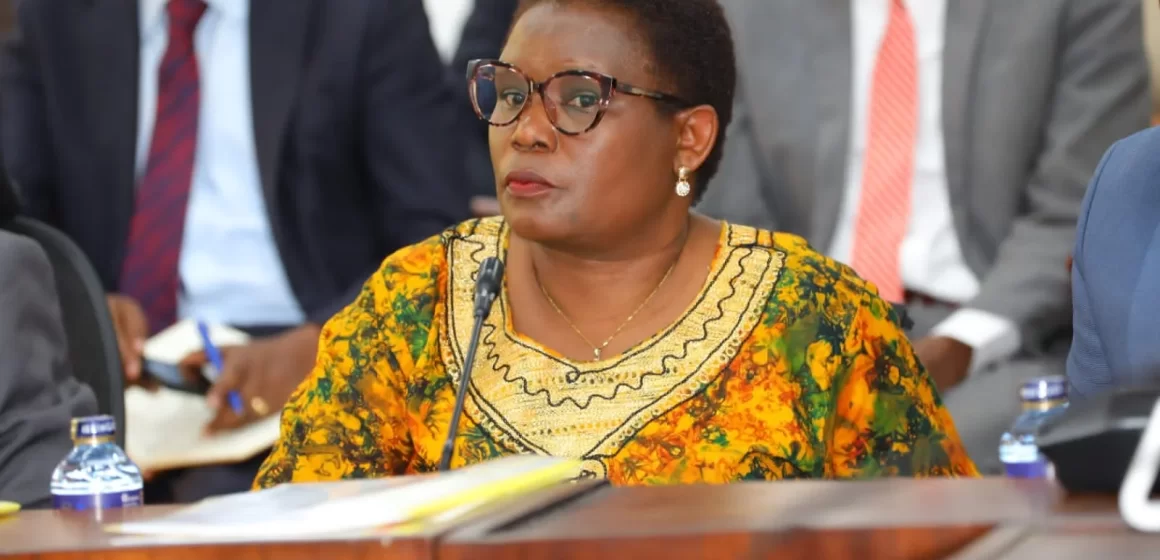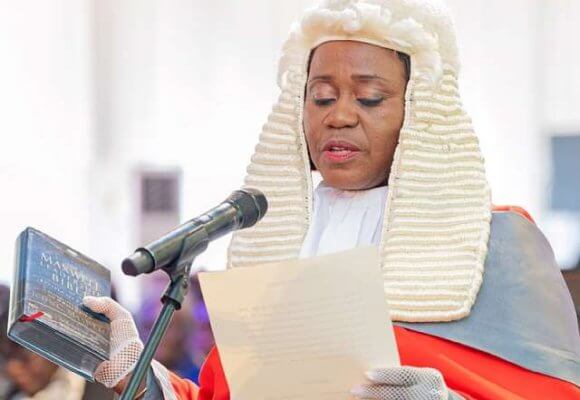|
LISTEN TO THIS THE AFRICANA VOICE ARTICLE NOW
Getting your Trinity Audio player ready...
|
Meru Governor Kawira Mwangaza was ousted from office on Tuesday night following a high-stakes impeachment vote in the Senate. In a heated session that extended into the late hours, Senators—primarily from the Kenya Kwanza coalition—voted to confirm all three charges against the embattled Governor, leading to her removal from office.
Governor Mwangaza, who had survived two previous impeachment attempts, could not withstand the third as the government mustered enough support to seal her fate. The first charge, gross violation of the Constitution and other laws, saw 26 Senators vote in favor of her removal, with 4 opposing and 14 abstaining. The second charge followed a similar trend, with 26 votes for, 2 against, and 14 abstentions. The third charge of abuse of office resulted in 27 votes to confirm, 1 opposing, and 14 abstaining.
“The Senate has resolved to remove from office by impeaching Hon. Kawira Mwangaza, the Governor of Meru County, and the Governor accordingly ceases to hold office,” declared Speaker Amason Kingi after the votes were tallied.
The Senate session was fraught with tension, with heated exchanges and shouting matches breaking out as Senators emerged from a closed-door meeting. Majority Whip Bonnie Khalwale, one of the few who opposed the impeachment, challenged the Speaker on procedural grounds, invoking the legacies of historical parliamentary figures like Martin Shikuku, Jean Marie Seroney, Chelagat Mutai, and JM Kariuki to argue his case. However, Speaker Kingi dismissed his objections and threatened to remove him from the chamber if he continued.
The drama escalated when the Speaker ordered the Sergeant-at-Arms to eject Nominated Senator Beth Syongo from the chamber, a move that prompted a loud protest from female Senators, who accused the orderlies of harassment.
Despite Mwangaza’s determined efforts to retain her position during her tumultuous tenure as Meru Governor, she now faces an uphill battle to reclaim her office. The day after her impeachment, Mwangaza, through her lawyer Eliud Mutuma, went to court to challenge the Senate’s decision. She secured a conservatory order from the court, temporarily blocking her removal from office.
Mwangaza’s legal team raised significant concerns about the impeachment process, questioning the legitimacy of the proceedings and arguing that the day of the vote had not been properly gazetted. They suggested that there was a hasty push to remove Mwangaza and install a replacement, which could undermine her rights.
The court’s conservatory order prevents the implementation of the Senate’s decision and prohibits the Speaker of the Senate or any other authority from announcing a vacancy in the governor’s office. The court order states, “Pending the inter partes hearing and determination of the Application dated 21/08/2024, a conservatory order be and is hereby issued staying the furtherance or the implementation of the Resolution of the Senate removing the Governor of Meru County, Hon. Kawira Mwangaza, from Office by way of impeachment.”
The legal battle is set to continue, with the court ordering Mwangaza to serve the application and petition on the respondent and file an affidavit of service. The respondents must file and serve their counter-response by August 28, 2024. Mwangaza will then have until September 4, 2024, to file a rejoinder and written submissions. The case will be heard on September 17, 2024, when the court will assess compliance with these orders and set a date to highlight the written submissions.
As the legal process unfolds, Mwangaza’s future as Meru Governor remains uncertain, with the court’s final ruling likely to determine whether she can reclaim her office or face permanent removal.











LEAVE A COMMENT
You must be logged in to post a comment.